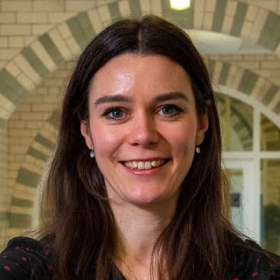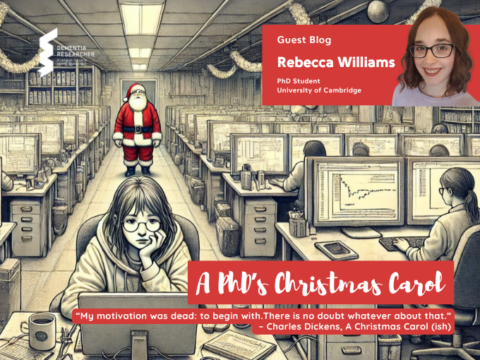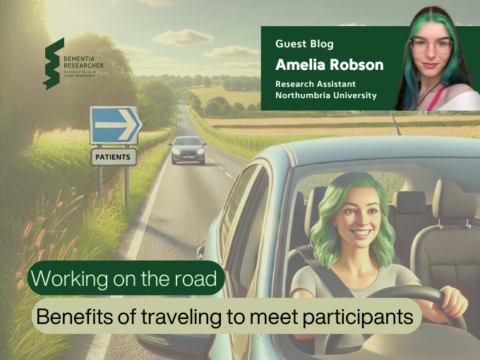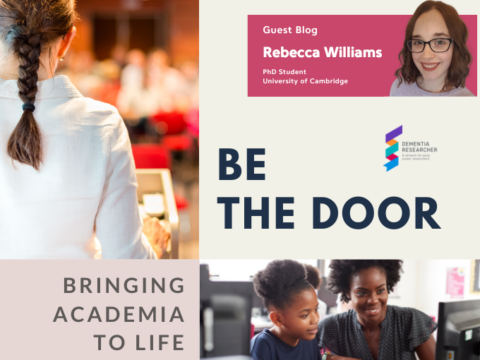Christmas time has this magical ‘let’s slow down, relax, and eat Christmas biscuits’ feel to it, enabling us to tick things off our lists we haven’t had time to do for a while, and reflecting on the past year. Having already put up my tree at time of writing (it is early December …) and my collection of Manchester Christmas Markets mugs having replaced my standard ones, I’m definitely feeling more reflective than I normally have time for!
Usually, we are rushing around from A to B to Z and all over again, which is great. I love the fast pace, it allows you to learn a great deal, meeting new people, seeing new places and cultures, reading about and conducting new research, or going completely out of your academic comfort zone and designing a boardgame (more about that later on!). But when you do so much there is often little time (or rather none) to take stock and reflect on work achievements, rejections, new things you learned and new places you’ve seen.
Travel wise learning about different cultures and settings, eating different food, and building up/strengthening great research collaborations, this year has been fantastic. Besides having visited our team in Colombia earlier this year for our ESRC project on older adult mental health needs, I’ve been to Portugal, Finland, the US, and the Netherlands for conference presentations. I’ve also visited collaborators in Bengaluru at the NIMHANS to set up a new dementia collaboration between my group at Liverpool and India. I shall not forget the tuktuk journey across the vast NIMHANS hospital grounds to find the right department! Now, this has been work travel, in between hiking the French alps for summer holiday and walking across two vipers, and running Chicago marathon (highlight!).
There has been so much going on this year, probably more so as we really are out of the COVID-19 pandemic heights now. There is simply too much to mention, but having a solid group now at Liverpool with fantastic postdocs and PhDs and RAs is another highlight, running a cross-European INTERDEM Taskforce on Inequalities another, and not to forget our co-produced and on sale Dementia Inequalities Game!
Of course there have been grant rejections, especially hard when they are shortlisted and you put so much effort as PI into them. However, others were funded also, and I’m really excited to be part of one of two new Dementia Policy Research Units (led by Profs Claudia Cooper and Sube Banerjee) starting 1st of January officially. And perhaps even more excited about going back to Australia twice in the next three years, as our Australian Research Council grant on adapting and implementing the Liverpool Dementia & Ageing Research Forum in Victoria, Australia, has been funded! To more kangaroos, quokkas, koalas, and wombats! Plus, we will welcome some long-standing Maastricht collaborators at Liverpool in March to set up the North West Coast Living Lab in Ageing and Dementia, based on their very successful model in Limburg.
But I’m getting ahead of myself thinking about some of the many exciting things in the pipeline for 2024. I suppose that’s what time to reflect allows us to do, think about all the things we’ve done and achieved in the past year, and be immensely grateful for those brilliant opportunities, and also have time to get excited about what’s lined up. Thinking about where I come from and my roots, I have to pinch myself sometimes.
Whilst there will always be rejections ahead of us, which can be immensely frustrating and happen to all of us, take this time during December and the Christmas break to be proud of what you have achieved this year, and what you are looking forward to in the new year. Preferably with Christmas biscuits (and a Manchester Christmas Markets mug filled with green tea).
Frohe Weihnachten (Merry Christmas)!

Dr Clarissa Giebel
Author
Dr Clarissa Giebel is a Senior Research Fellow at the University of Liverpool and NIHR ARC North West Coast. Clarissa has been working in dementia care research for over 10 years focusing her research on helping people with dementia to live at home independently and well for longer, addressing inequalities that people with dementia and carers can face. Outside of her day work, Clarissa has also organised a local dementia network – the Liverpool Dementia & Ageing Research Forum, and has recently started her own podcast called the Ageing Scientist.

 Print This Post
Print This Post





